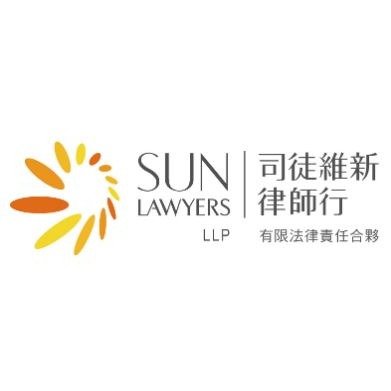Best Corporate & Commercial Lawyers in Hong Kong
Share your needs with us, get contacted by law firms.
Free. Takes 2 min.
Or refine your search by selecting a city:
List of the best lawyers in Hong Kong
About Corporate & Commercial Law in Hong Kong
Corporate and commercial law in Hong Kong refers to the laws, regulations, and legal practices that govern businesses, companies, trade, and commercial transactions within the region. As a major international financial center, Hong Kong is known for its robust and business-friendly legal framework, transparent regulatory environment, and adherence to the common law system. The territory's legal system is distinct from that of Mainland China and is based largely on English common law, enhanced by local statutes and regulations. Corporate and commercial law covers a wide range of activities, including the formation and dissolution of companies, mergers and acquisitions, regulatory compliance, contract law, intellectual property, competition law, banking, and finance.
Why You May Need a Lawyer
There are numerous situations where individuals and companies may require legal assistance in the field of corporate and commercial law in Hong Kong, including:
- Starting a new business or incorporating a company - Drafting, negotiating, or reviewing vital business contracts - Handling mergers, acquisitions, or disposals of businesses - Navigating regulatory requirements and compliance issues - Resolving shareholder, director, or partnership disputes - Protecting intellectual property such as trademarks, patents, or copyrights - Responding to competition or antitrust concerns - Dealing with employment law issues as an employer - Managing cross-border transactions or international business arrangements - Dissolving, restructuring, or winding up a company
Seeking professional legal advice can be crucial for understanding obligations, minimizing risks, ensuring compliance with local laws, and protecting your interests in commercial activities.
Local Laws Overview
Hong Kong’s corporate and commercial law is shaped by key local ordinances and regulations, many of which are modeled after common law principles. Some important legal aspects to be aware of include:
- The Companies Ordinance (Cap. 622): Governs the formation, administration, and dissolution of companies incorporated in Hong Kong. It defines the roles and responsibilities of directors and shareholders and covers corporate governance, disclosure, and reporting obligations. - Business Registration Ordinance (Cap. 310): Requires all businesses operating in Hong Kong to be registered with the Inland Revenue Department. - Competition Ordinance (Cap. 619): Prohibits anti-competitive conduct, such as price-fixing and abuse of market power. - Intellectual Property Laws: Protects trademarks, patents, designs, and copyrights both under local ordinances and adherence to international treaties. - Contract Law: Based on common law, with agreements typically enforced as long as core requirements, such as offer, acceptance, consideration, and intention, are met. - Employment Ordinance and Related Laws: Outline minimum employment standards and employee protections. - Money Laundering and Anti-Corruption Compliance: Companies must comply with regulations and reporting requirements to prevent unlawful conduct. - Foreign Investment: Hong Kong maintains a largely open investment environment, but some sectors may require specific permits or have sector-specific regulations.
Frequently Asked Questions
What is the process for registering a company in Hong Kong?
To register a company, you need to choose a company name, prepare incorporation documents, submit them to the Companies Registry, and pay the required fees. You must also register with the Inland Revenue Department for business registration.
Do I need to be physically present in Hong Kong to set up a company?
No, you do not need to be physically present. Incorporation can be completed through local agents, law firms, or company secretaries who handle filings and documentation on your behalf.
What types of business entities are available in Hong Kong?
The main types are private limited companies, public limited companies, sole proprietorships, and partnerships. The private limited company is the most common form for local and international businesses.
Are there any restrictions on foreign ownership of companies in Hong Kong?
Hong Kong has no restrictions on foreign ownership of companies in most sectors. Foreign nationals can own 100 percent of the shares of a Hong Kong-incorporated company.
What are the annual compliance requirements for Hong Kong companies?
Companies must file annual returns with the Companies Registry, prepare audited accounts, hold annual general meetings, and renew their business registration certificates each year.
Is it necessary to have a company secretary and a registered office in Hong Kong?
Yes, every Hong Kong company must have at least one company secretary and a registered office address located within Hong Kong.
How does Hong Kong handle corporate disputes?
Disputes may be resolved through negotiation, mediation, arbitration, or litigation in Hong Kong courts. The jurisdiction’s legal system offers efficient and impartial dispute resolution mechanisms.
What regulations cover commercial contracts in Hong Kong?
Commercial contracts are governed by common law principles. Parties are usually free to negotiate their terms, and courts will enforce them as long as they comply with legal requirements and public policy.
Are intellectual property rights well protected in Hong Kong?
Yes, intellectual property is strongly protected by local laws and international agreements. Registration of trademarks, patents, and designs is encouraged to secure enforcement rights.
What anti-money laundering requirements apply to companies?
Companies must comply with regulations set by the Anti-Money Laundering and Counter-Terrorist Financing Ordinance. This includes customer due diligence, record keeping, and reporting of suspicious transactions.
Additional Resources
For further help and information regarding corporate and commercial matters in Hong Kong, the following organizations and government bodies may be useful:
- Companies Registry - Inland Revenue Department - Hong Kong Trade Development Council - Securities and Futures Commission (SFC) - Hong Kong Intellectual Property Department - Competition Commission Hong Kong - Hong Kong Bar Association - Law Society of Hong Kong
Next Steps
If you require legal assistance in the field of corporate and commercial law in Hong Kong, consider the following steps:
- Assess your specific needs and objectives, such as business formation, contracts, or dispute resolution - Gather all relevant documents and information before seeking legal help - Contact a qualified corporate or commercial lawyer who is experienced with Hong Kong law - Schedule an initial consultation to discuss your situation and get tailored advice - Follow your lawyer’s guidance to ensure compliance with local laws and to safeguard your company or business interests - Stay informed of any legal or regulatory changes that may impact your business activities
Legal advice can provide crucial protection for your business and help you navigate the complexities of Hong Kong’s dynamic commercial environment.
Lawzana helps you find the best lawyers and law firms in Hong Kong through a curated and pre-screened list of qualified legal professionals. Our platform offers rankings and detailed profiles of attorneys and law firms, allowing you to compare based on practice areas, including Corporate & Commercial, experience, and client feedback.
Each profile includes a description of the firm's areas of practice, client reviews, team members and partners, year of establishment, spoken languages, office locations, contact information, social media presence, and any published articles or resources. Most firms on our platform speak English and are experienced in both local and international legal matters.
Get a quote from top-rated law firms in Hong Kong — quickly, securely, and without unnecessary hassle.
Disclaimer:
The information provided on this page is for general informational purposes only and does not constitute legal advice. While we strive to ensure the accuracy and relevance of the content, legal information may change over time, and interpretations of the law can vary. You should always consult with a qualified legal professional for advice specific to your situation.
We disclaim all liability for actions taken or not taken based on the content of this page. If you believe any information is incorrect or outdated, please contact us, and we will review and update it where appropriate.
Browse corporate & commercial law firms by service in Hong Kong
Hong Kong Attorneys in related practice areas.
Browse corporate & commercial law firms by city in Hong Kong
Refine your search by selecting a city.












